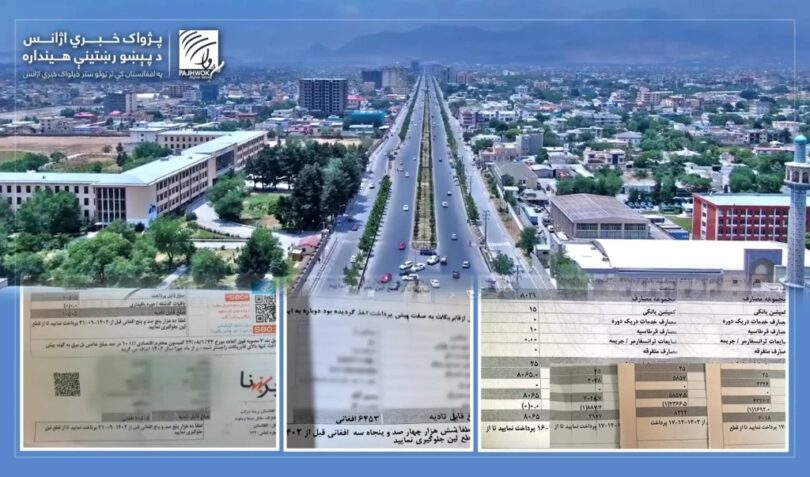KABUL (Pajhwok): Some inhabitants of Kabul are complaining about inflated electricity bills despite prolonged outages — a problem the relevant department acknowledges.
Some residents told Pajhwok Afghan News power bills remained high despite the increase in power outages.
Hekmatullah Maiwand, a spokesman for Da Afghanistan Breshna Shirkat (DABS), told Pajhwok Afghan News that 70 to 75 percent of electricity was supplied to the people in normal situation, but this level decreased to 50 percent in winter.
High electricity cost despite outages
Rahimullah Khaksar, a resident of Qabilbai area of 9th police district of Kabul, told Pajhwok that electricity was supplied to the people based on their turn during winter.
According to him, the consumers are provided electricity for four hours one night in one phase and for four hours the next night in another phase and the people of our area have electricity for one or two hours during daytime.
He added considering the mentioned hours, there should have been a decrease in electricity cost, but on the contrary, the bills were higher than before.
He showed his house electricity bill to Pajhwok and said before, his electricity bill was 120 to 500 afghanis, but last month’s bill was 10,505 afghanis and the month before last month was 3500 afghanis.
Khaksar said: “We don’t have a TV in our house, we don’t use electronic heater, we don’t have a washing machine, there are only three lights and we charge mobile phones. I was wondering how to pay 10,500 afghanis bill when another month’s bill came which was 3,500afs.”
The 15-year-old said he was an orphan and was struggling with economic hardships and could not afford to pay the power bill.
“When I approached relevant departments, they told me this electricity is consumed from your meter, you have to pay it. They said if you want this problem to be resolved, we will take away this meter and you should buy another power meter. But that process also cost 10,000 to 15,000 afs then I borrowed money and paid the bills,” he added.
Farhad Karimi, a resident of Arzan Qimat area said: “This winter, electricity supply has deteriorated we don’t have proper electricity.” He said in 24 hours they availed electricity for three to four hours.
He added previously he would pay about 750 afghanis per month, but currently despite reduced power consumption because of outages his bill was about 1,500afs.
National Olympic Committee and General Directorate of Sports former director Nazar Mohammad Mutmin also posted pictures of electricity bills last week and wrote on his Facebook page: “A friend sent me these bills, saying I wish electricity supply timing is not further reduced, otherwise the bill would increase fourfold. More power outages mean high bills.”
But Mohammad Aman Popalzai, a resident of Qasba area in the fifteenth district, said he availed electricity for four to five hours in 24 hours.
He said “In the past when electricity was available for 10 or 12 hours in 24 hours, our bill hovered between 500 afs and 800 afs. Now electricity supply duration has been reduced and its cost surged.”
Mohammad Agha, a resident of 16th district, also complained about electricity shortage and said in the past, he would pay 1,000 and 1,200 afghanis in electricity bill, but now despite prolonged blackouts, bills remained unchanged.
Referring to people’s complaints, Hekmatullah Maiwand, a spokesman for DABS, told Pajhwok: “Electricity consumption increases in winter. Uzbekistan has halved electricity supply and this caused the price to increase a bit,” he added.
According to him, DABS can provide 70 to 75 percent electricity to the people in normal conditions, but this level has dropped to 50 percent in winter.
He said those complaining about high electricity bills should refer to the power utility and their problems would be addressed.
According to reports, Afghanistan imports 430 MW of electricity from Uzbekistan, 440 MW from Tajikistan, 202 MW from Turkmenistan and 102 MW from Iran to meet its needs.
Afghanistan currently produces approximately 150 megawatts of electricity, of which 100 megawatts are produced by a number of private companies.







